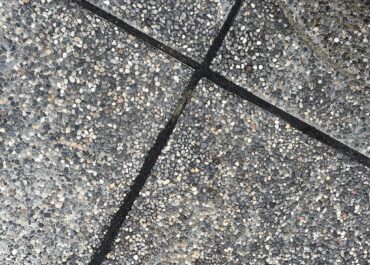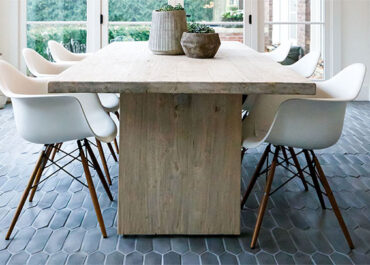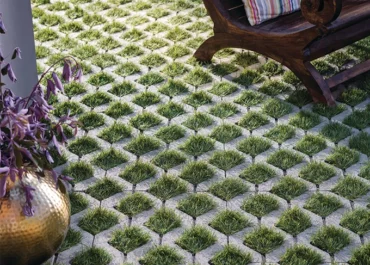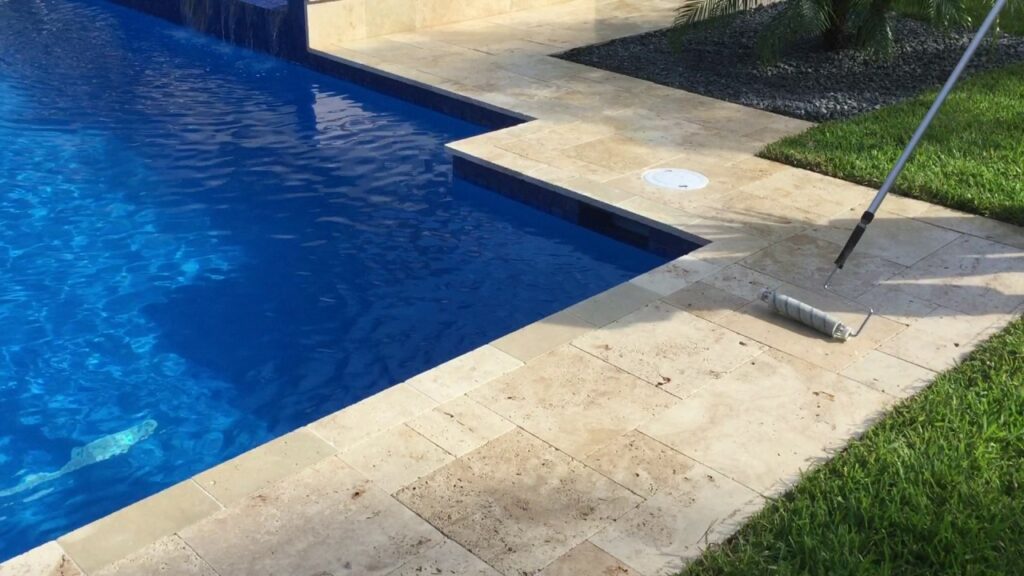
With its timeless elegance and natural charm, travertine has emerged as a popular choice in hardscape design – transforming outdoor spaces into picturesque retreats for the whole family. Whether used for patios, walkways, driveways, or pool decks, travertine pavers have gained prominence due to their durability and aesthetic appeal. That said, one crucial aspect that often sparks debate among professionals is whether sealing travertine pavers is a good idea or not.
As you may know, sealing is a common practice in the paver industry, given how it protects porous surfaces (such as travertine) from harsh climate conditions, thereby extending the lifespan of your investment. This article will delve into the benefits and considerations of sealing travertine pavers, shedding light on the best practices to preserve their inherent beauty.
Read as well: How to Clean Travertine Pavers
Is Sealing Travertine Pavers a Good Idea?
The question of whether to seal travertine pavers is a nuanced one, surrounded by differing opinions among experts in the field. But why is that?
Well, travertine is naturally permeable – allowing water to be absorbed – which contributes to its unique character and slip-resistant properties. However, this water-absorption trait also raises concerns about the potential for staining and damage from harsh weather conditions. Sealing travertine pavers can help mitigate these concerns by creating a protective barrier that repels water, oils, and contaminants.
To read our complete guide on pavers restoration, click here.
On one side of the spectrum, professionals argue that sealing travertine compromises its natural water-absorption capabilities (which, for many, are the selling point of travertine in the first place), potentially making it less suitable for poolside installations. The unsealed surface of the travertine allows water to escape, thus preventing the formation of slippery surfaces around pools and minimizing safety hazards.
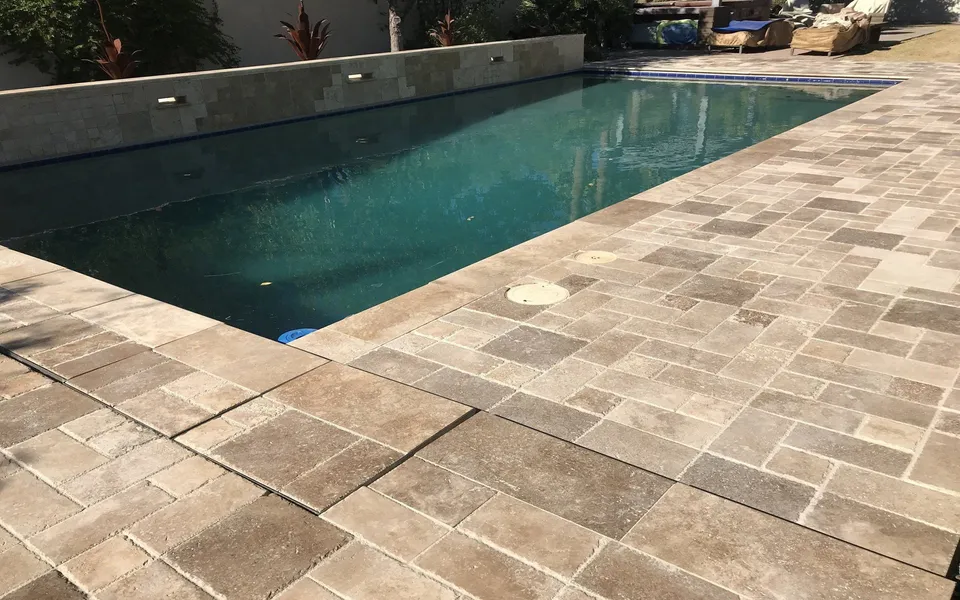
On the other hand, proponents of sealing emphasize the importance of safeguarding travertine against the adverse effects of weather, foot traffic, and staining. In scenarios where aesthetics, longevity, and ease of maintenance take precedence over water absorption, sealing becomes an essential step.
In short, sealing is recommended in any outdoor project that isn’t regularly wet or humid, as in the case of pool decks. Just remember that you should always consult an expert before making any budget-driven decisions.
The Best Sealers for Travertine Pavers
That said, if you opt to do so, picking the right sealer for your pavers is pivotal in ensuring optimal results. There are two primary types of sealers: penetrating sealers and topical sealers.
Penetrating sealers infiltrate the stone, providing protection while preserving the natural texture. Topical sealers, on the other hand, create a protective layer on the surface, altering the appearance slightly.
When considering sealers for travertine pavers, it’s vital to opt for a breathable sealer that allows moisture vapor to escape. This is particularly crucial for travertine, as preventing the buildup of trapped moisture can help avert potential damage. High-quality, solvent-based penetrating sealers are often recommended, as they offer deep penetration and excellent protection against staining.
Again, it’s advisable to consult with a professional to determine the most suitable sealer for your specific project and location.
Here are three well-reviewed sealing products that we suggest to clients who are looking for optimal results:
Aqua Mix Sealer’s Choice Gold
- Type: Penetrating sealer
- Features: Water-based sealer, excellent protection against stains, suitable for indoor and outdoor use.
- Reviews: Highly regarded for its effectiveness, ease of application, and long-lasting results.
Tuff Duck Granite, Grout, and Marble Sealer
- Type: Penetrating sealer
- Features: Solvent-based sealer, deep penetration, durable protection against water, stains, and contaminants.
- Reviews: Appreciated for enhancing natural colors, repelling water effectively, and offering lasting protection.
StoneTech BulletProof Sealer
- Type: Penetrating sealer
- Features: Advanced formula, superior protection against stains, suitable for interior and exterior use.
- Reviews: Praised for durability, resistance to stains, and ability to preserve the stone’s natural look.
How to Seal Travertine Pavers: A DIY Guide
Before you begin the sealing process, ensure you have the following items and tools ready:
- Sealing product;
- Mild detergent;
- Clean water;
- Applicator;
- Paint tray (if using a roller);
- Rags or towels;
- Plastic sheeting or drop cloth;
- Broom or blower;
- Scrub brush or soft bristle brush;
- Paint roller and handle (if using a roller);
- Paintbrush (if using a brush);
- Sprayer (if using a sprayer);
- Rubber gloves;
- Safety glasses;
Don’t miss: Travertine vs Porcelain Pavers – Complete Guide
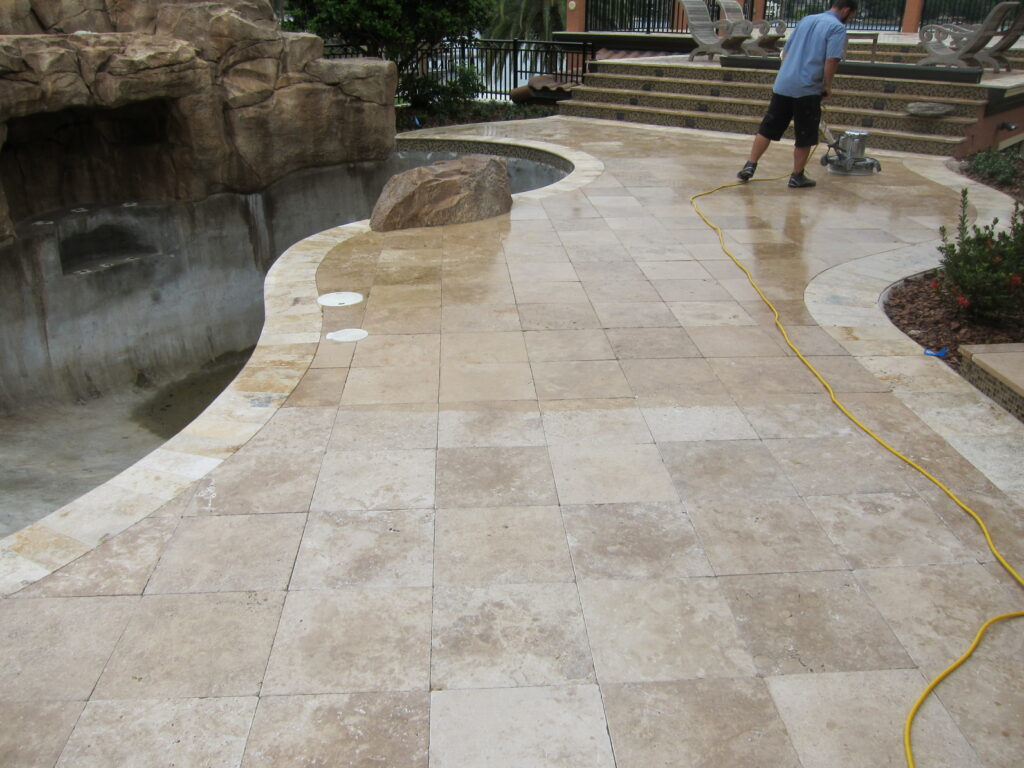
Once you have everything in hand, follow the steps below:
Clean the Surface
Thoroughly sweep or blow off dirt, debris, and leaves from the paver surface. Protect surrounding areas with plastic sheeting or drop cloths to prevent accidental spills.
Mix Cleaning Solution
Prepare a solution of mild detergent and clean water. Scrub the pavers using a scrub brush to remove dirt and stains. Rinse thoroughly with clean water and allow the pavers to dry completely. Then, after the pavers are dry, perform the water droplet test by placing a few droplets of water on the surface – if the water is absorbed within a few minutes, the pavers are ready to be sealed.
Apply the Sealer
Using the chosen applicator (brush, roller, or sprayer), apply the sealer evenly to the travertine surface. Follow the manufacturer’s instructions regarding the number of coats and the drying time between coats. After applying the sealer, use rags or towels to wipe off any excess sealer on the surface, because this will prevent the formation of a hazy residue.
Allow for Curing
Let the sealer cure for the recommended time (usually 24 to 48 hours) before allowing foot traffic or exposure to water. Once the sealer has cured, perform the water droplet test again to ensure that the sealer is working effectively!
Get an unlimited supply and professional installation with Eagle Pavers!
So, have we helped you decide on the best surface for your outdoors? As professionals in the business for years, trust us in this: there’s no margin of error with travertine pavers, especially when it comes to wet areas.
As a branch of Eagle Stones, our team specializes in paver supply and installation around the county of Sarasota and Manatee, Florida. In case you’re near us, don’t hesitate to give us a call so we can get started on your project with a free estimate!
Click here to view the full online catalog – we’ll be waiting for you to reach out.


